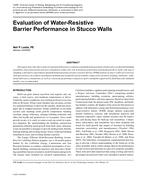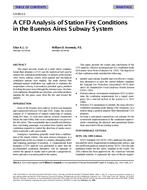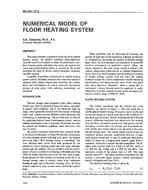In the United States, ASHRAE/IES Standard 90.1 is cited in the U.S. Energy Policy Act as the national energy standard for buildings, except for low-rise residential buildings. This paper provides a detailed review of the upcoming changes in the building envelope requirements for cold climates that will be included in the 2013 version of ASHRAE/IES Standard 90.1, and compares them with the previous requirements for cold climates in the 2010 version of ASHRAE/IES Standard 90.1. This session informs attendees about upcoming changes in energy standards, thereby providing HVAC designers with information to update their design practices to incorporate improvements in the energy efficiency of the building envelope.
Heat loss and heat gain through the building envelope is a significant factor in HVAC design. Changing standards for the building envelope are resulting in new options for HVAC designers. For example, the switch to double-glazing several decades ago in commercial buildings in mild and moderate climates allowed designers to eliminate the use of separate perimeter heating systems. Heating and cooling could be provided from a single overhead system in those climates. Now, windows with multiple low-emissivity coatings and triple glazing and better frames, and opaque walls with better insulation and reduced thermal bridging, allow for the consideration of new options for HVAC design of buildings in cold climates.
Energy efficiency is a key component of ASHRAE’s goals to minimize the environmental impact of building construction and operation. With information on updates to the national energy efficiency standards for building construction, the HVAC designer will depart with information allowing them to keep their designs up with changes in construction practices.
Citation: Cold Climate Conference, 2012
Product Details
- Published:
- 2012
- Number of Pages:
- 8
- File Size:
- 1 file , 390 KB
- Product Code(s):
- D-CCC12-26


